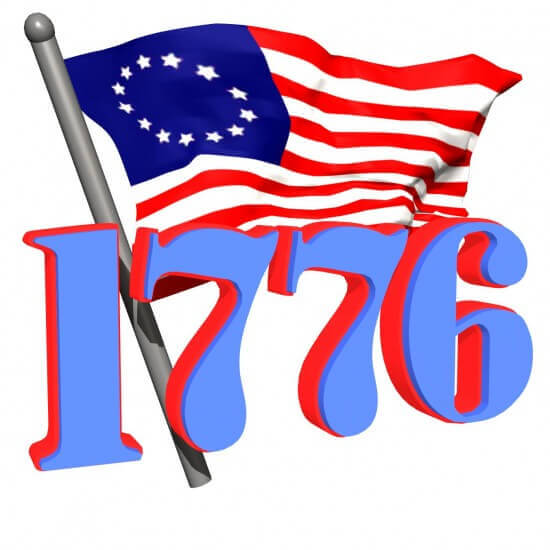
Since America was under the King’s rule in the very beginning they were known as colonies not as states. Once the Declaration of Independence was signed, America became known as the United States. The thirteen colonies that were involved in the American Revolution were: Massachusetts, New Hampshire, Rhode Island, Connecticut, New York, New Jersey, Pennsylvania, Delaware, Maryland, Virginia, North Carolina, South Carolina, and Georgia. These states were the thirteen original states in the United States.
In the beginning the colonies were pretty much allowed to develop on their own, but then suddenly in 1763 Britain decided to take a more active role in the colonies. By then it was too late because the colonies and Great Britain had major differences in their lifestyles and politics. After the French and Indian War was over in 1763 Great Britain decided to tax the colonies to help pay for the war and to help pay for the colonies’ defense, since British soldiers were being used. Britain also decided to make the colonies return revenue to the mother country. Because of the strict guidelines that Britain was now trying to enforce, many colonists were left unhappy.
One of the main reasons that the colonists were unhappy was because when Britain decided to tax the colonies on sugar and molasses, as well as making them return revenue to the mother country, the colonies did not have any representation in Parliament. Some of the colonists, such as Samuel Adams, John Adams, and the Sons of Liberty felt that they should not have to pay taxes since they were not being represented in Parliament. These colonists led the cry of “no taxation without representation”?.
Those first taxes were actually lower than what was on the books, but they had never been enforced before and the colonists didn’t see why they had to suddenly start paying taxes to a country that was so far away and had little to do with their survival. But things didn’t stop there. After the problems with the first taxes, Britain continued to pass even more acts that were designed to make it hard for the colonies to be independent. Some of the more famous acts that were passed by King George III and Parliament were the Stamp Act, the Tea Act, and the Coercive Acts, which the Americans called the Intolerable Acts. All of these acts were designed to tax and/or control the American colonies.
One of the hardest jobs our founding fathers had was trying to convince other colonists that the colonies should be independent from Great Britain. Not everybody agreed to this, and Great Britain soon branded the colonists who wanted independence as “rebels”?. But these rebels stood up for what they believed in and fought until America was free from Great Britain’s rule. This led us to the American Revolution, not to mention all of the Intolerable Acts that Great Britain passed to try and control the colonies.
The American Revolution began in 1775 with the “shot heard round the world”? which was fired at Lexington on April 19, 1775 and lasted eight and a half years. The American Revolution finally ended on September 3, 1783, with America and the King of England signing the Treaty of Paris.
